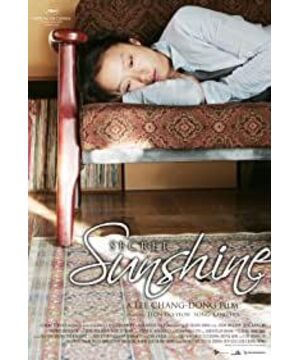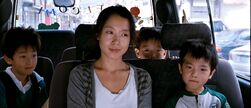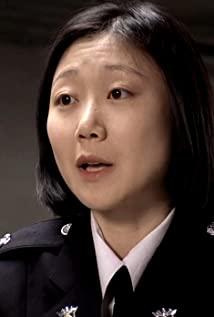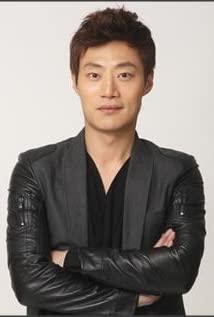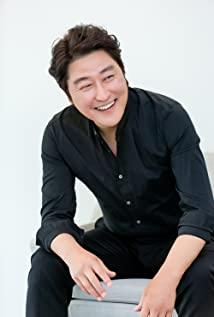The first screening day of the main competition unit of the 13th #Faro IslandFilm Festival# brings you "Miryang". The following is the broken and messy evaluation of the residents of the frontline town!
We Min Hee:
Feel the heartache. The religions from the West were finally defeated by the Eastern way of "cutting off the silk (obsession)". The sense of oppression is too strong, making people breathless like a heroine.
Queen of the Faroe Islands:
Before I forgive, no one is qualified to forgive for me, and no one has the position to persuade me to forgive, and sinners do not deserve to be forgiven. Religion is not belief, belief requires piety, and religion can have selfish desires. Forcing belief will only counteract belief.
Jeff Jiang:
The discussion on the existence of God is rare in East Asian films, which greatly enhances the focus and charm of this Korean "sorrow-type film". The god outside the painting is never loud, and the love in the painting is not in focus. Where can I find the sun?
Parisian Love Songs:
The sun shines so ironically, a woman who is always escaping reality, but a way of self-preservation. Perhaps most of the people in life are doing this to protect themselves from reality, to face everything in life, and to rely on others, but in the end they collapse and have no support.
Matsuno Somatsu:
From this, I seem to get a new understanding of belief in God: a person believes in God because he is selfish, because he wants to calm his heart, and then he will do good deeds, because he wants something, if this If behavior cannot bring peace of mind, will he still believe in God?
Bat bat:
The place where literature cannot be adapted is the unique emotional barrier built up with words. Surrounded by words, readers use their imagination to enrich their definitions of the world, redemption, and despair. Stifling, this is the imperfection of Li Changdong as a director.
Mozart Lumso:
Rather than wanting to transcend human nature, it is better to accept it. The divinity that emerges from transcending human nature is only a formal appearance, and the essence of most spiritual detachment by means of external objects is self-deception. "Do you know what people call a person like you? A layman." A reverse, the laity surpasses the saint to save the elegant.
The song is wrong:
How bright the front is, how crazy is the back, gossip and rumors spread rapidly in the small town, escape again after the tragedy, and use the religion that was ignored before to anesthetize yourself, in fact, the devil is hard to get rid of, the sin is hard to remove, and God cannot replace him The pain in my heart can only be buried in a corner of no one.
Outisss:
Li Cangdong's films are of very high quality in terms of the level of play and the acting skills of the actors. I liked the first half very much. The sudden change to religion in the middle caught me off guard, and this part also made me look forward to the whole film. It has been greatly reduced, and the second half is full of heart-wrenching, full of various profound analyses of human nature, and a sense of heaviness permeates the entire movie, which makes me unable to return to my mind after watching it for a long time.
RIVER:
The first half is a little stagnant, and my favorite is still the restraint under Li Cangdong's camera. All emotions were once suppressed under the safety line, but they suddenly broke out when they were caught off guard, playing with the audience's psychology in a relaxed manner. The portrayal of the stance is ambiguous and without lack of thinking, and finally settled in the desolation of the heroine's heart. Jeon Do-yeon's convincing performance made people feel the grief and depression of the heroine.
Feifei:
Forgiveness and redemption, religion and anti-religion. "I got the love of God, and God made me love everyone, so I decided to forgive you, but how can you say that you have been forgiven?" The extreme pain in life cannot be solved, and religion cannot solve the deepest pain at all. , but without religion, hatred cannot be expelled, and layers of contradictions envelop the struggles of human nature. Sister Jeon Doyeon is really a wonderful person, and she handles every emotion just right.
Bob_Chow:
Although it is not as good as "Burning" in terms of perception, it is very literary, and it can feel all kinds of deliberate omissions and complex contradictions. Neither moral criticism nor the negative impression of religion can sum up the whole article, whether Sunshine is a private God, and what kind of existence is Miryang. The image of the auto repair shop owner and God overlaps and differs, whether it is to criticize the abstract existence of God or to shape him into a human being, such as Jesus descending to the world. Vigorous and powerful, it's a pity that I can't appreciate Jeon Do-yeon's performance personally, otherwise it will be even more shocking. The aftertaste is very long.
Pours full of Zhao +:
Too ironic, I wanted to use belief in God as an outlet, trying to act as a believer and trying to get rid of everything, only to find that religion has also become a sinner to absolve himself. "I haven't forgiven myself, so why do you forgive me?" But from a subjective point of view, for both of them, religion is also a tool to free themselves. However, this God is only his own God, there is no absolute justice, and there is no absolute "equal treatment". Alas, we just need those who understand us, not the rotten good people who are kind and love us. Because I can't speak to everyone.
Bwheat19920313 :
The movie is famous for "sun", and the environment of the whole movie is not a rainy day that is very bright, but the whole person is extremely painful. The more intense that light burns, the greater the pain of being piled up in the dark. She was originally a very fragile person, but this world has to pull out the life-saving straw that keeps her normal, and the hair that was finally cut is blown into the messy wasteland, like a broken heart in a furnace Burn out. Whether it's those ignorant people who are too indifferent, the religion that looks grand but is actually useless, or the small town that looks bustling but "deadly silent", everything puts the sun that seems to be able to shine on the ground. blockade. The sun that should have been shining has become hidden, standing below, chilling all over.
Ou Yin:
Li Cangdong's first movie is only the third Korean movie since he became a fan of the movie. Every movie has Song Kanghao, I became a Buddha... A common story of bitterness, the middle of the story is about religion, whether it is the plot or the characters. There is a big problem with drawing. It seems that the director deliberately set up this tragedy in a small town in order to implant criticism of religion. If you look at it this way, the first half hour of the film is really filled with a lot of scribbles. The religious criticism in the second half seems to be accurate, but in fact it is still superficial, and it feels even more out of place when it is substituted into the Miryang context. Religious topics are better left to Bergman or Buñuel to discuss. Jeon Do-yeon's acting is a rare highlight of this film, and there are many highlights, but it still doesn't resonate with me. I don't hate this movie, I just think it's too mediocre + boring.
George:
The feeling of "Burning" is that Li Cangdong is really amazing in depicting the subtle relationship between people and society, and "Miryang", whether it is the depiction of the city, society, and family, the director's details are too good. It may have reached a certain limit of the image, and the awareness of connecting with the director is even more reminiscent of some of the greatest writers. People are too humble, and no matter how great the achievements are, they are only fragile achievements. Only by falsifying and forgetting can we find the so-called truth and peace. "Miryang" is by no means a moral/normative critique of religion that can be summed up as a "Korean-style critique", but a Nietzschean "Amoral Theory of Truth and Lies": under the high clear sky is a solemn 's game, where joy and rescue work well, no happiness, but a mechanism to avoid misfortune. Li Cangdong's lens is the tension between the people and the scam she invented. The women who cut their wrists and the burning men are people from the former society.
Pincent:
The bright natural light at the beginning is really warm, suggesting the fate of the religion. The incident of the son broke a mother. After blindly praying to God, she and the person who used to face her evil words can also eat kimchi pot because of religion. In that scene, Jeon Do-yeon handled it very well, and she laughed deeply. There is always a trace of morbidity and madness, and it also indicates that the subsequent inner collapse will be hollowed out. "How could God forgive someone before I forgive him", tortured God in church (literally) and God was silent. The rebirth, questioning and collapse of an unbeliever is as cruel as filling an empty shell and being emptied. Bergman and Schrader first saw an Asian film discussing the existence of God. Li Cangdong is too advanced, the incision is small enough, there is enough white space, he focuses on the heart of the character, he is quite restrained, and does not speak clearly, the camera revolves around the character, and the questions thrown to the audience are quite heavy, what is that ray of sunshine? What kind of place is Miryang? Is God by your side? Can sunlight reach every corner? Self-cutting may be a sign of rebirth, and there are people around you, but also hope.
#FIFF13#DAY1's main competition magazine score will be released later, please wait and see.
View more about Secret Sunshine reviews


